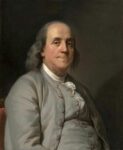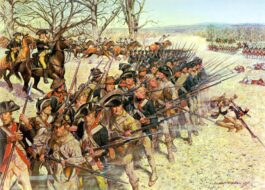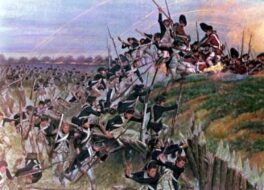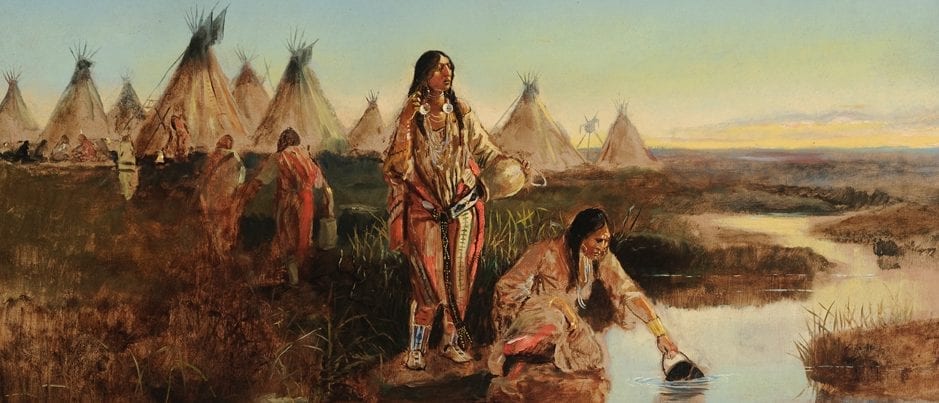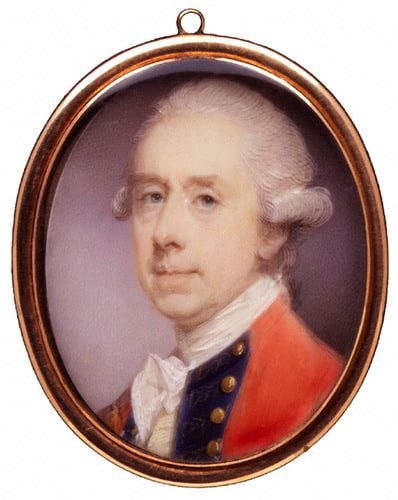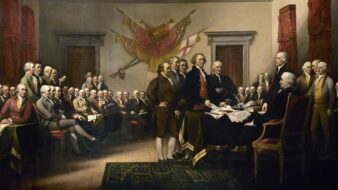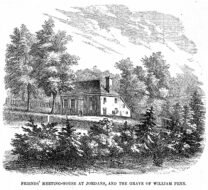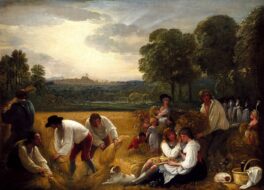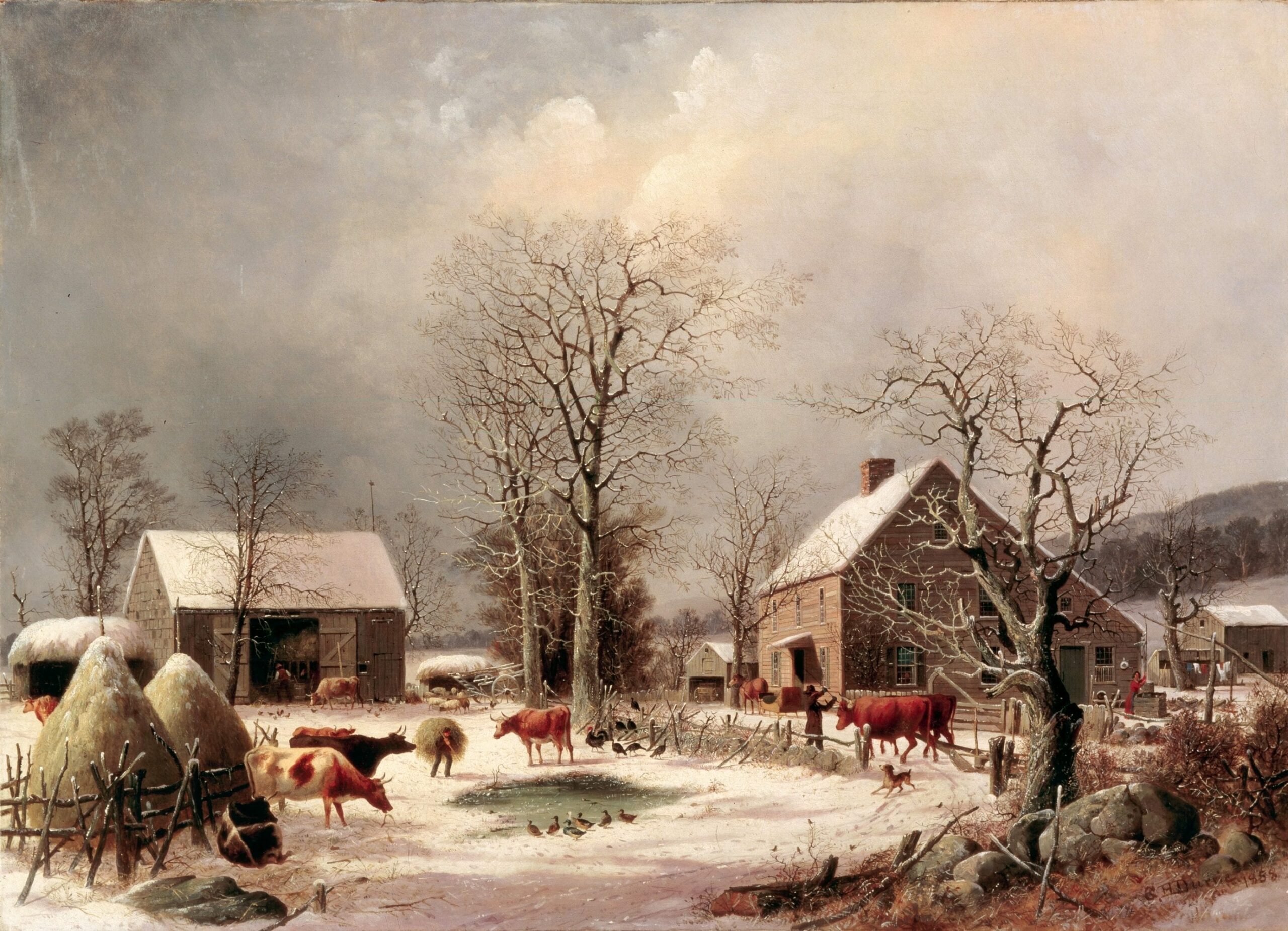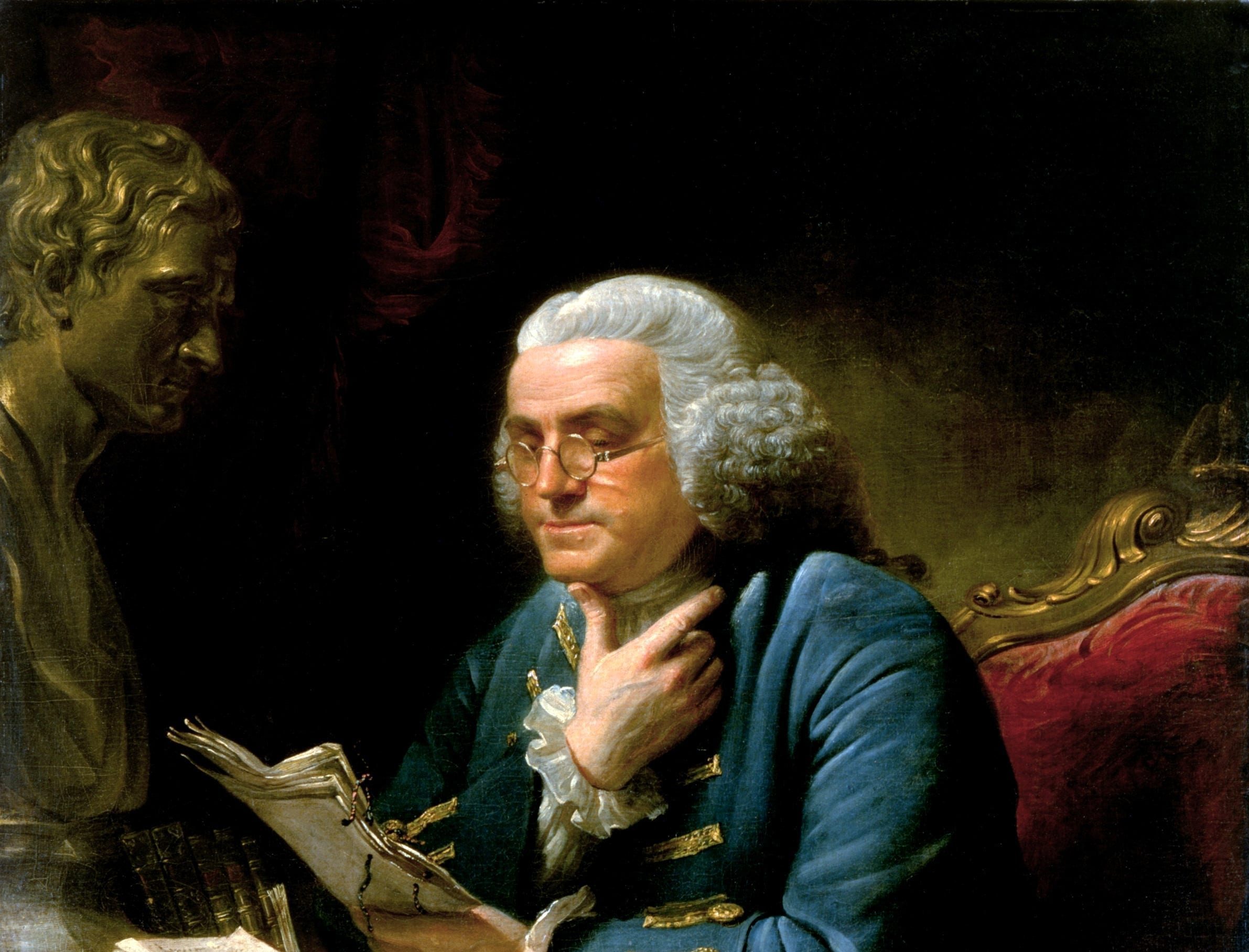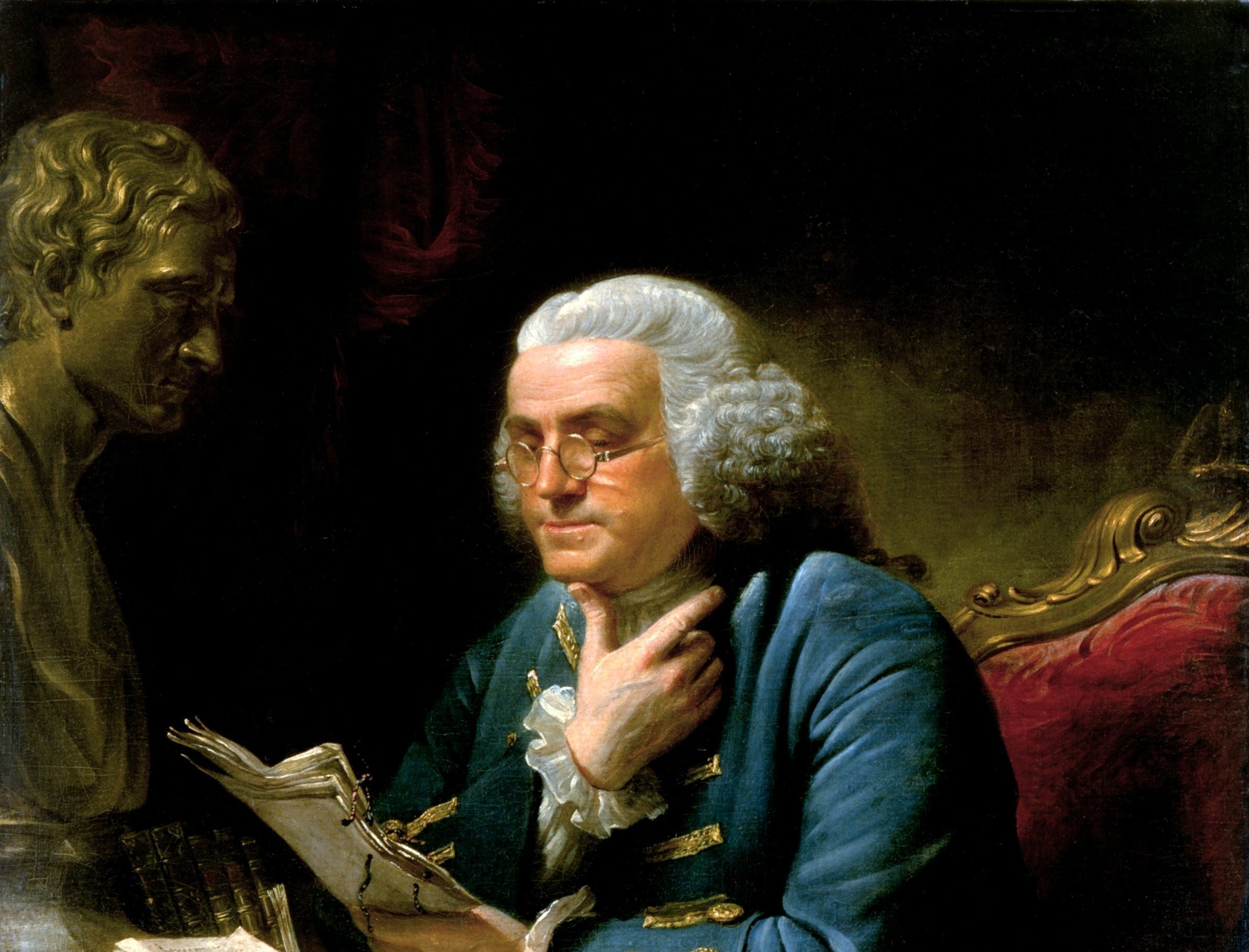
No related resources
Introduction
Although it was easy to celebrate independence, the British army made it difficult for Americans to secure it. By the end of 1776, Jefferson’s pen seemed mightier than Washington’s sword. The year’s military campaign began propitiously when in March artillery pieces dragged by Henry Knox’s men to Dorchester Heights caused the Redcoats to withdraw from Boston. Fortunes reversed, however, when the British attacked in New York. Washington met them on Long Island, withdrew to Manhattan, retreated to White Plains, and eventually allowed the enemy to push him south through New Jersey and across the Delaware River to Pennsylvania.
At a time when the Continental army—and the American people—needed a lesson in perseverance, Thomas Paine (1737–1809) could speak from experience. Prior to the stunning success of Common Sense, he had lived a life of obscurity and setbacks. Before moving to America from England in late 1774, he had failed at his father’s trade of corset-making. He had also failed as a teacher, tax collector, and shopkeeper. Now, however, his writing had earned him his status as a leading American revolutionary and motivator of his adopted countrymen.
The American Crisis appeared throughout the war in multiple installments, both in pamphlet form and on the pages of newspapers, mostly in 1776 and 1777. Signed with the penname “Common Sense,” Paine leveraged his earlier success to gain attention for this series, which aimed to reinforce the resolve of Patriots while chastening Loyalists. George Washington ordered that copies of this first installment of the series, which appeared shortly before the December 26 Battle of Trenton, be distributed to every brigade and read aloud to the soldiers of the Continental Army.
Source: Moncure Daniel Conway, ed., The Writings of Thomas Paine, 4 vols. (New York: G. P. Putnam’s Sons, 1894–96), 1:170–79. http://oll.libertyfund.org/titles/paine-the-writings-of-thomas-paine-4-vols
THESE are the times that try men’s souls. The summer soldier and the sunshine patriot will, in this crisis, shrink from the service of their country; but he that stands it now, deserves the love and thanks of man and woman. Tyranny, like hell, is not easily conquered; yet we have this consolation with us, that the harder the conflict, the more glorious the triumph. What we obtain too cheap, we esteem to lightly: it is dearness only that gives everything its value. Heaven knows how to put a proper price upon its goods; and it would be strange indeed if so celestial an article as FREEDOM should not be highly rated. Britain, with an army to enforce her tyranny, has declared that she has a right (not only to TAX but) “to BIND us in ALL CASES WHATSOEVER,”[1] and if being bound in that manner, is not slavery, then is there not such a thing as slavery upon earth. Even the expression is impious; for so unlimited a power can belong only to God….
I have as little superstition in me as any man living, but my secret opinion has ever been, and still is, that God Almighty will not give up a people to military destruction, or leave them, unsupported, to perish, who have so earnestly and so repeatedly sought to avoid the calamities of war, by every decent method which wisdom could invent. Neither have I so much of the infidel in me, as to suppose that He has relinquished the government of the world, and given us up to the care of devils; and as I do not, I cannot see on what grounds the king of Britain can look up to heaven for help against us: a common murderer, a highwayman,[2] or a housebreaker,[3] has as good a pretense as he.
It is surprising to see how rapidly a panic will sometimes run through a country…. Yet panics, in some cases, have their uses; they produce as much good as hurt. Their duration is always short; the mind soon grows through them, and acquires a firmer habit than before. But their peculiar advantage is, that they are the touchstones of sincerity and hypocrisy, and bring things and men to light, which might otherwise have lain forever undiscovered…. They sift out the hidden thoughts of man, and hold them up in public to the world. Many a disguised Tory has lately shown his head….
…Why is it that the enemy have left the New England provinces, and made these middle ones the seat of war? The answer is easy: New England is not infested with Tories, and we are. I have been tender in raising the cry against these men, and used numberless arguments to show them their danger, but it will not do to sacrifice a world either to their folly or their baseness. The period is now arrived, in which either they or we must change our sentiments, or one or both must fall. And what is a Tory? Good God! What is he? I should not be afraid to go with a hundred Whigs against a thousand Tories, were they to attempt to get into arms. Every Tory is a coward; for servile, slavish, self-interested fear is the foundation of Toryism; and a man under such influence, though he may be cruel, never can be brave.
But, before the line of irrecoverable separation be drawn between us let us reason the matter together: Your conduct is an invitation to the enemy, yet not one in a thousand of you has heart enough to join him. Howe[4] is as much deceived by you as the American cause is injured by you. He expects you will all take up arms, and flock to his standard, with muskets on your shoulders. Your opinions are of no use to him, unless you support him personally, for it is soldiers, and not Tories, that he wants.
…I consider Howe as the greatest enemy the Tories have. He is bringing a war into their country, which, had it not been for him and partly for themselves, they had been clear of. Should he now be expelled, I wish with all the devotion of a Christian, that the names of Whig and Tory may never more be mentioned; but should the Tories give him encouragement to come, or assistance if he come, I as sincerely wish that our next year’s arms may expel them from the continent, and the Congress appropriate their possessions to the relief of those who have suffered in well-doing. A single successful battle next year will settle the whole. America could carry on a two-year war by the confiscation of the property of disaffected persons, and be made happy by their expulsion. Say not that this is revenge, call it rather the soft resentment of a suffering people, who, having no object in view but the good of all, have staked their own all upon a seemingly doubtful event. Yet it is folly to argue against determined hardness; eloquence may strike the ear, and the language of sorrow draw forth the tear of compassion, but nothing can reach the heart that is steeled with prejudice.
Quitting this class of men, I turn with the warm ardor of a friend to those who have nobly stood, and are yet determined to stand the matter out. I call not upon a few, but upon all; not on this state or that state, but on every state. Up and help us; lay your shoulders to the wheel; better have too much force than too little, when so great an object is at stake. Let it be told to the future world, that in the depth of winter, when nothing but hope and virtue could survive, that the city and the country, alarmed at one common danger, came forth to meet and to repulse it. Say not that thousands are gone, turn out your tens of thousands; throw not the burden of the day upon Providence, but “show your faith by your works,”[5] that God may bless you. It matters not where you live, or what rank of life you hold, the evil or the blessing will reach you all. The far and the near, the home counties and the back, the rich and the poor, will suffer or rejoice alike. The heart that feels not now, is dead; the blood of his children will curse his cowardice, who shrinks back at a time when a little might have saved the whole, and made them happy. I love the man that can smile in trouble, that can gather strength from distress, and grow brave by reflection. It is the business of little minds to shrink; but he whose heart is firm, and whose conscience approves his conduct, will pursue his principles until death. My own line of reasoning is to myself as straight and clear as a ray of light. Not all the treasures of the world, so far as I believe, could have induced me to support an offensive war, for I think it murder; but if a thief breaks into my house, burns and destroys my property, and kills or threatens to kill me, or those that are in it, and to “bind me in all cases whatsoever” to his absolute will, am I to suffer it? What signifies it to me, whether he who does it is a king or a common man; my countryman or not my countryman; whether it be done by an individual villain, or an army of them? If we reason to the root of things we shall find no difference; neither can any just cause be assigned why we should punish in the one case and pardon in the other. Let them call me rebel… I feel no concern from it; but I should suffer the misery of devils, were I to make a whore of my soul by swearing allegiance to one whose character is that of a sottish,[6] stupid, stubborn, worthless, brutish man. I conceive likewise a horrid idea in receiving mercy from a being, who, at the last day shall be shrieking to the rocks and mountains to cover him, and fleeing with terror from the orphan, the widow, and the slain of America.
There are cases which cannot be overdone by language, and this is one. There are persons, too, who see not the full extent of the evil which threatens them; they solace themselves with hopes that the enemy, if he succeed, will be merciful. It is the madness of folly, to expect mercy from those who have refused to do justice; and even mercy, where conquest is the object, is only a trick of war; the cunning of the fox is as murderous as the violence of the wolf, and we ought to guard equally against both. Howe’s first object is, partly by threats and partly by promises, to terrify or seduce the people to deliver up their arms and receive mercy. The ministry recommended the same plan to Gage, and this is what the Tories call making their peace, “a peace which passes all understanding”[7] indeed! A peace, which would be the immediate forerunner of a worse ruin than any we have yet thought of…. And were any one state to give up its arms, that state must be garrisoned by all Howe’s army of Britons and Hessians to preserve it from the anger of the rest. Mutual fear is the principal link in the chain of mutual love, and woe be to that state that breaks the compact. Howe is mercifully inviting you to barbarous destruction, and men must be either rogues or fools that will not see it. I dwell not upon the vapors of imagination: I bring reason to your ears, and, in language as plain as A, B, C, hold up truth to your eyes.
…By perseverance and fortitude we have the prospect of a glorious issue; by cowardice and submission, the sad choice of a variety of evils—a ravaged country—a depopulated city—habitations without safety, and slavery without hope—our homes turned into barracks and bawdyhouses for Hessians,[8] and a future race to provide for, whose fathers we shall doubt of. Look on this picture and weep over it! And if there yet remains one thoughtless wretch who believes it not, let him suffer it unlamented.
- 1. The March 1766 Declaratory Act had insisted that Parliament possessed authority to impose its will on American colonists “in all cases whatsoever.”
- 2. A thief who steals from travelers.
- 3. A thief who breaks into and then steals items from a house.
- 4. General William Howe (1729–1814) was commander-in-chief of British forces in North America (1775–1778).
- 5. See James 2:18.
- 6. Drunken and/or foolish.
- 7. See Philippians 4:6.
- 8. Approximately 30,000 men from Hesse-Kassel and other German regions were ordered by their governments to reinforce the British army. Frequently mischaracterized as mercenaries, it was not the Hessians but instead their governments that profited from their service.
Letter from Henry Knox to his Wife (1776)
December 26, 1776
Conversation-based seminars for collegial PD, one-day and multi-day seminars, graduate credit seminars (MA degree), online and in-person.
